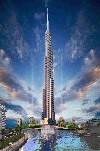After farms, it’s now the turn of firms…
President Robert Mugabe’s government has published a bill to move majority control of “public companies and any other business” to black Zimbabweans.
The goal is to ensure at least a 51% shareholding by indigenous black people in the majority of businesses.
Zimbabwe’s official inflation is 4,500% but independent economists and retailers say it is really above 11,000% and picking up speed. With inflation levels that high and the country suffering from shortages of food, fuel and foreign currency; this really isn’t the time to make things even worse by applying the same policy that got the country there in the first place on its firms.
When the government seized control of land owned by white farmers, in its crazy effort for land distribution, no good came out of it, and all it did was trigger a sharp drop in production and exports of agricultural goods, thereby bringing the economy crushing down to its knees.
I’m not against land and farm redistribution, in fact I am all for it, and I too think it was unfairly distributed before, but such a move should be approached with much caution and years and years of planning; you don’t just wake up one morning, start kicking white zimbabwean farmers out of their homes and off their farms and giving it to people who mainly have no experience or resources to run a farm. Maybe a better way would have been to reorganize and redistribute as partnerships between the black and white zimbabweans, plan it through different phases, test it slowly and carefully on a small group and see how it affects the output of the farms, the quality, everything and then take decisions based on it.
But apparently some people don’t learn from their previous mistakes and want to go on applying them in other areas, further damaging the country and its dead economy.
Zimbabwe has a special place in my heart; I grew up there and made my first friends there; I lived some of the sweetest years of my life there; and I hold the dearest of memories of the country and its people; Somewhere deep inside of me, I still consider it a home to me.
This is why it pains me so much to see a country that was so great, beautiful and vibrant with some of the happiest people I’ve ever met, no matter how rich or poor they were, in a situation like the one it is in today.
I’m not one of those people who only looks to the bad side of things, Mugabe did some really good things for Zimbabwe over the years, but he and his government are obviously taking the wrong approach in all of this.
I truly wish for a better brighter future for Zimbabwe.
 Burj Dubai, the supertall tower designed by Skidmore, Owings and Merrill for developer Emaar being built in Dubai, is now the tallest building in the world.
Burj Dubai, the supertall tower designed by Skidmore, Owings and Merrill for developer Emaar being built in Dubai, is now the tallest building in the world.